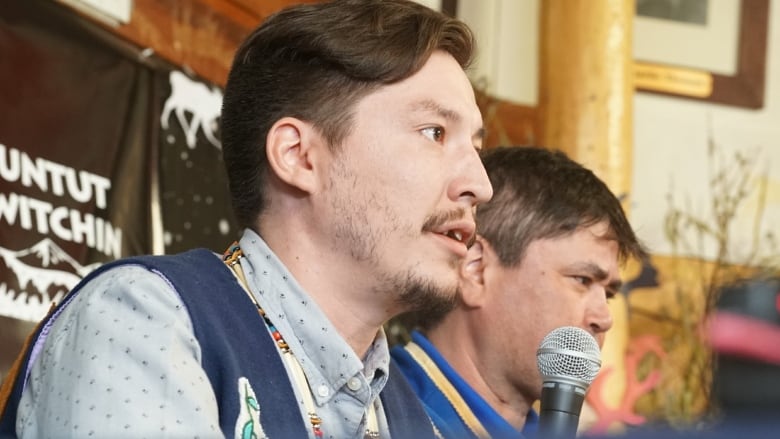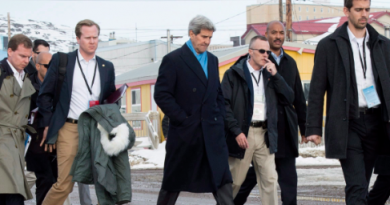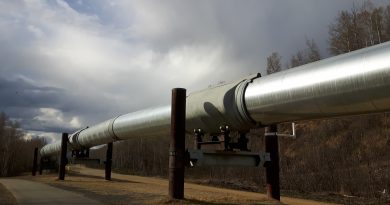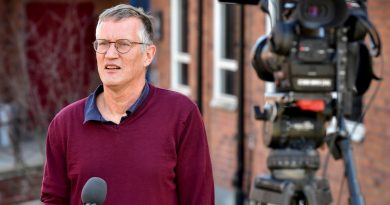First Nations in northwestern Canada to have own school board, Indigenous-led schools

‘I can tell you that our government is absolutely committed to see this through,’ says education minister
The Yukon government has signed an agreement to establish a new, separate school board for First Nations in the territory, paving the way for schools geared specifically toward Indigenous students.
“We campaigned on this during the election,” said Education Minister Jeanie McLean, at a news conference on Thursday morning.
“I can tell you that our government is absolutely committed to see this through.”
The First Nation School Board Framework Agreement, signed by the Yukon government and 10 of the territory’s 14 First Nations, lays out the process for establishing the new school board under the territory’s Education Act. It does not include a timeline.
“We are at a turning point in history, both at a national and territorial level,” said Vuntut Gwitchin Chief Dana Tizya-Tramm, who chairs the Chiefs Committee on Education, a body set up a few years ago with the aim of improving outcomes for Indigenous students.
“The only path forward is for the colonial government to recognize the strength of Yukon First Nations’ way, and to relinquish authority to enter into a true relationship and partnership.”
‘Paradigm shift’
The framework agreement describes how the board will be established, and how existing schools might elect to fall under that board’s authority. It also details how funding for the board will be negotiated.
Schools operated by the First Nations board will not be exclusively for Indigenous students. Any student will be able to enrol.
But Tizya-Tramm said the approach to education will be dramatically different from what’s offered at other public schools. He describes a system of land-based education, with involvement from elders and other community members, and alternative ways of assessing progress.
He said it will represent a “paradigm shift” when it comes to education for Indigenous students, some of whom have struggled under the current system.
“As we know, our lands and our animals and our plants are our greatest teachers. Removing our children who have historically grown up on the land and putting them under fluorescent lights is not conducive to the best ways of learning,” he said.
“When you see First Nations schools in our communities, run by our elders, by our communities, and experiential knowledge, the rest of Canadians and Yukon are going to look at the children in their school systems, and they’re going to want the same.”
Chronic absenteeism and lack of inclusive education
The announcement of the framework agreement on Thursday follows the release this week of two separate reports on the territory’s education system, including one from the territory’s Child and Youth Advocate Office on school absenteeism.
That report found a much higher rate of chronic absenteeism among First Nations students in Yukon, compared to non-Indigenous students. Interviewers talked to students, teachers, parents, administrators and First Nations leaders and found widespread frustration with a school system rooted in colonialism that includes unhelpful policies and lacks supports for students.
Another report released this week was based on a review of inclusive and special education. It describes a system not built to serve students, who often don’t have access to their own culture or language.
Thursday’s announcement also comes during a week when many are dealing with renewed trauma and grief over the legacy of church-run residential schools in Canada, and Yukon. On Monday, thousands of people marched through downtown Whitehorse and held a vigil for the 215 children whose remains were recently discovered buried on the grounds of a former residential school in Kamloops, B.C.
“This has been an emotional week for so many,” said Tizya-Tramm. “A reminder that this country, this territory, used schools to carry out a systematic genocide, and cannot bury its past.”
McLean grew emotional as she referred to the Kamloops discovery, saying it “serves as a grim reminder of the long history of colonial violence that occurred within Canadian education institutions, including the Yukon.”
“It is through education that we can address the legacy of residential schools and harms of colonialism … the path is there, and we will walk together,” she said.
-Written by Paul Tukker with files from Mike Rudyk and Chris Windeyer
Related stories from around the North:
Related stories from around the North:
Canada: Publisher in Arctic Canada putting Inuit-language books online amidst COVID-19 closures, Eye on the Arctic
Finland: Budget cuts threaten international Sámi language cooperation, Yle News
Greenland: Nunavut children’s books translated for circulation in Greenland’s schools, Eye on the Arctic
Norway: Walt Disney Animation Studios to release Saami-language version of “Frozen 2”, Eye on the Arctic
Sweden: Can cross-border cooperation decolonize Sami language education?, Eye on the Arctic
United States: Inuit leaders applaud UN move to designate International Decade of Indigenous Languages, Eye on the Arctic



